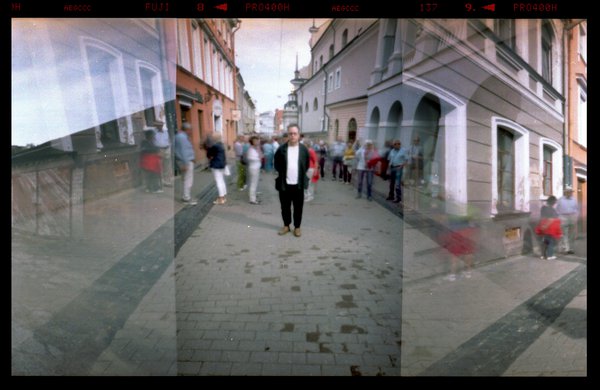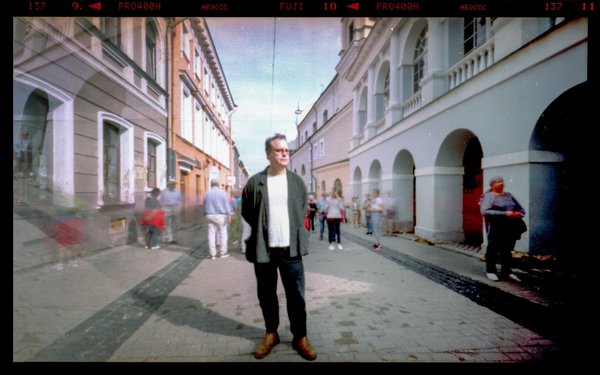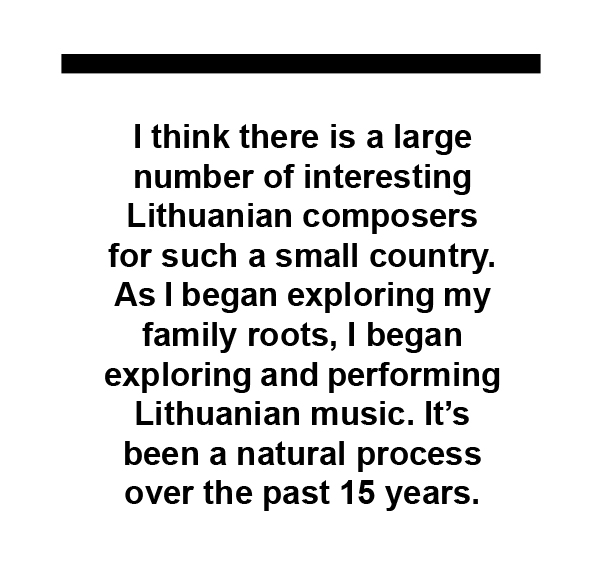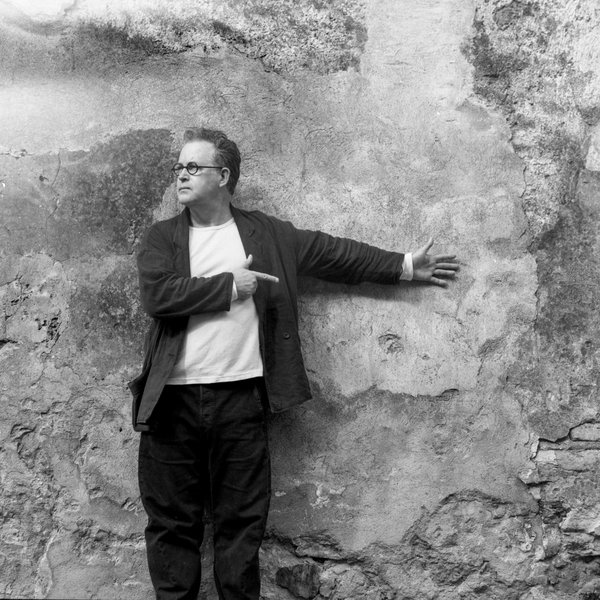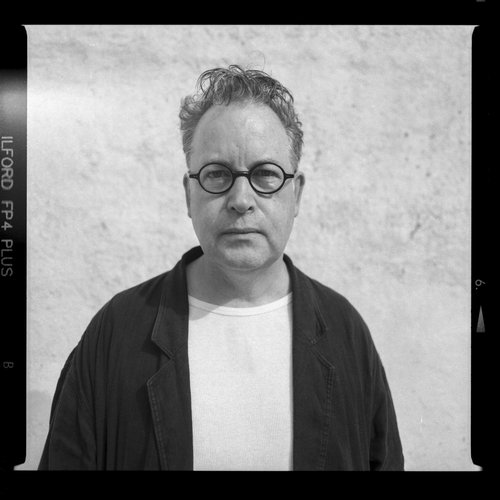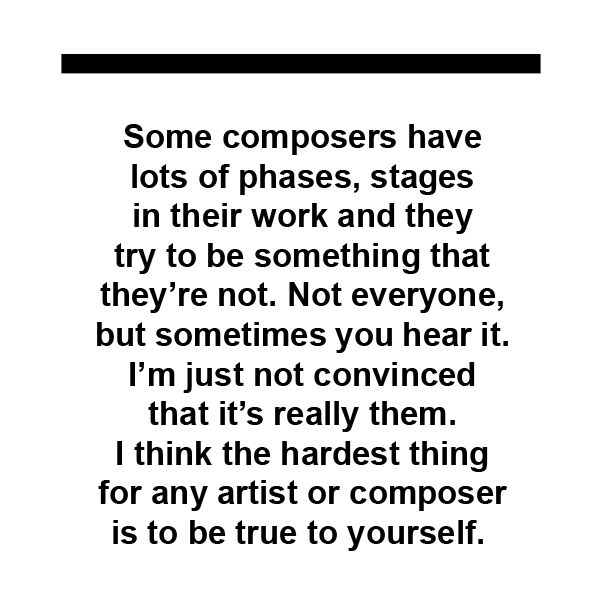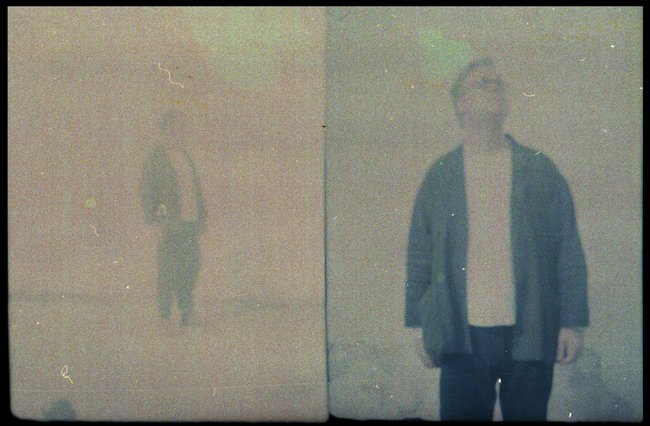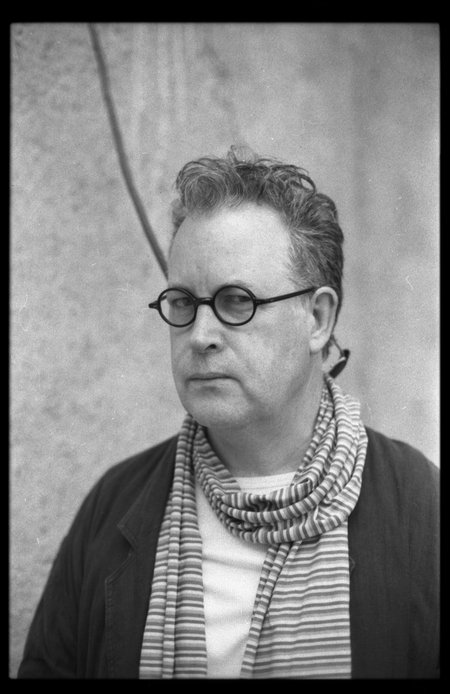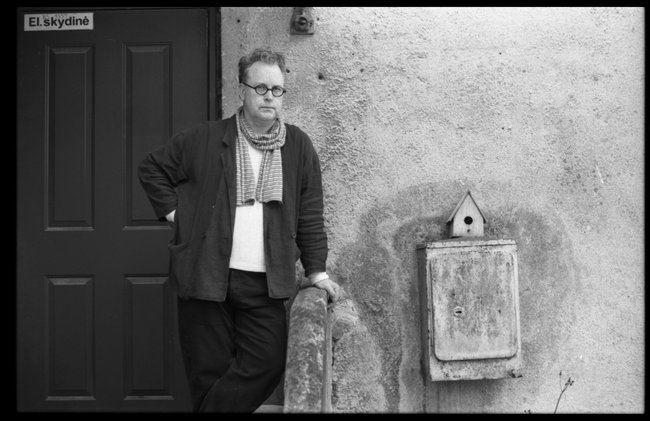Rasa MURAUSKAITĖ | Wandering Along the Beach: An Interview with the Experimental Performer Anton Lukoszevieze
Anton Lukoszevieze is a cellist who performs avant-garde, experimental and improvisational music with an almost religious fervour. In London, where the artist and multidisciplinary artist lives, his name is often quoted in connection not only with the British experimental music scene, but also with the performance of Lithuanian music. The United Kingdom, the USA, Germany, France, Norway, Slovakia, Poland and a whole host of other countries, which Anton himself forgets to mention, have heard the work of Lithuanian composers performed by Apartment House, the ensemble he founded. A noteworthy coincidence is that Anton’s ancestors come from Lithuania, from the small border town of Zarasai. According to the artist, his Lithuanian roots had indeed an influence on him in that Lithuanian art seemed more interesting to him than, let’s say, Japanese or Latvian art. In the artist’s opinion, considering the small size of the country, there is a huge number of talented composers in Lithuania. So, we spoke about the composers here with an individual voice, about those who have been forgotten and whose music needs to be revived, and about wandering aimlessly along a beach, where on some occasions you find nothing, but on others something quite amazing.
As I told you before, I would like to dedicate this talk to Lithuanian music and your relationship with it. What is the very first thought that comes to your mind on hearing the phrase ‘Lithuanian music’?
No idea. Well, I mean that’s like saying, if you hear ‘American art’, what does it make you think of. It’s either a general thing or it’s very personal. It would have been different when I was younger, but it has changed. I don’t have a concept of Lithuanian music. I have a concept of different people. It’s very much in a state of flux and change.
Then maybe we should start from the beginning. How strongly is your interest in Lithuanian music related to the fact that you actually have Lithuanian roots?
If part of your family comes from a certain country, and if you are interested in art and music, you sometimes connect with it because of the coincidence. I’ve performed a lot of experimental music, music by Fluxus artists like George Mačiūnas (this is music for me) and I knew that he was Lithuanian. I myself began exploring my family history and it became a part of my life. I’m married to a Lithuanian lady, I have Lithuanian relatives, ancestors, etc.
I think it’s a natural process. I am more likely to be interested in Lithuanian culture than, I don’t know, Papua New Guinean or Latvian, or Japanese. But these things also do interest me cause I’m quite a polymath. I am interested in lots of things.
Everybody has different stories and experiences of exploring family history. What is yours?
Well, my eldest brother was very interested in genealogy. After the fall of the Soviet Union we were able to access more records. So, I personally went to the Genocide and Resistance Research Centre of Lithuania to look for some records since my grandfather’s brother was deported to Siberia with his family, where some of them died. My brother started accessing immigration records of Lithuanian emigrants in England. Both of us started piecing together information and managed to get marriage certificates, birth certificates of our aunts, uncles, grandparents. Then I discovered that I really like Lithuanian music. For example, Rytis Mažulis – he is a fantastic composer!
I think there is a large number of interesting Lithuanian composers for such a small country. I’m interested in the intensity of composers and their work. So, as I began exploring my family roots, I began exploring and performing Lithuanian music. It’s been a natural process over the past 15 years.
How did you start, 15 years ago, your acquaintance with works by Lithuanian composers?
I tend to know of people’s work before I meet them. Music Information Centre Lithuania has a very good website. It’s very clear, you have a list of composers, their ages, their works, examples of their works. Maybe about 15 years ago I came across the composers Rytis Mažulis and Onutė Narbutaitė, and then some younger ones. I’ve performed and commissioned works from Rytis Mažulis, Ričardas Kabelis, Justė Janulytė, Egidija Medekšaitė, I work with Arturas Bumšteinas. I’m also interested in works by older composers. Bronius Kutavičius is a wonderful composer, I also did an album of Antanas Rekašius.
Sometimes if I become interested in a composer’s work, I contact them to work together. I never perform music just for the sake of it. It’s always a deep, profound interest in it. Some contemporary music performers perform certain composers in order to get concerts or become a group. Talking about myself, I’m not only interested in Lithuanian music, Lithuanian artists, writers are also of interest to me. For example, I was highly influenced by the photographer Vytautas Balčytis, the poet Antanas Kalanavičius, and early recordings of Lithuanian folk music from the 1930s.
You are one of those artists who have an interdisciplinary approach working in a few different fields. Does this lead to a more profound realisation of your artistic ideals?
Yes, I work as a visual artist, photographer, I compose as well. I do not make a distinction. Some people are happy just writing music and that’s great. Some people are more eclectic. It’s just who they are. The thing about the music world is that most people still find it very hard to take a multidisciplinary approach seriously. It’s still a quite conservative world, even in contemporary music. But it changes, since in the past 20 years composers have had much more access because of the internet and other technologies. On your laptop you can record, make a film, mix it, edit it and do it yourself. All these things couldn’t happen 20 years ago. Technologies have been the main thing, not globalisation.
But there are bad things about them, I think. When I was a kid, we only had the library, records and books. Everything came from books and experiences at concerts. Now I can click on Spotify and listen to 10 different albums from all over the world. It’s not the most profound experience most of the time. But maybe I’m just being old-fashioned.
Before this interview I had a chance to read your interview in The Strad. Here is your quote from there: “I’ve always doubted the supposed greatness of the instrumentalist and I’m a little reluctant to think of myself as a ‘cellist’ in the usual sense of the word.” In what sense then do you see yourself as a cellist?
I don’t think that the notion of a cellist has changed a lot in general. We are just trying to make work. I want to make good, interesting concerts. I believe in good programmes. I like performing, but I do not want to be a poster on the wall. I fundamentally love music. I love Bach, Schubert. I play Bach nearly every day. I had a very strong education, because I went to the Royal College of Music, learned the repertoire at an early age. I fantasise about learning to play the viola da gamba, because there is so much repertoire which I love, but I don’t have the time. I’m happy doing concerts and recording with my group. And there are still a lot of interesting things to be made.
You have mentioned the name of the Lithuanian composer Rytis Mažulis at least twice during this conversation. What does his music have that fascinates and attracts you?
It’s him. It’s nothing else. I mean, there are obvious influences on him such as 14th century French polyphony, but I think he is just a good composer. This use of canonic structures with microtonality is quite individual. He is very interesting and writes very beautiful music. You can hear the process in it. Sometimes it can be mysterious because it has a very thick harmonic movement, like in ajapajapam (2002). Mažulis was maybe the first Lithuanian composer whose music I played.
Dealing with a lot of Lithuanian music from older and younger generations, can you see the difference among those composers who work here in Lithuania and those who mostly live abroad?
No. Honestly. I’m not interested in this globalisation. Sometimes I see young composers who live in Holland and who are exposed to the Dutch scene. Maybe there is an influence in the way they write music, but I’m not sure. I tend to believe in iconoclastic figures, those who just do their work regardless of what’s going on.
Here in Lithuania I met a very interesting artist – Jurga Šarapova. She just had a show at the Vilnius Academy of Arts. She’s fantastic. While she’s drawing, she sings amazingly eccentric and kind of surreal songs. I want to work with her. Also, a lot of paintings by Kęstutis Zapkus, in New York City, are influenced by music. I met him, we talked about the influence of music on his work and I had this idea of transcribing his drawings into music notation and recording it with my group. So, I’m just taking what interests me. I don’t really have an agenda. I don’t have a big goal.
But is there something in particular which takes your interest in the work by any composer or artist?
I think it’s just an individual person’s work. I became interested in George Mačiūnas not because of Fluxus, but because he left all of the scores. Solo for Balloons, Music for Everyman, Solo for Poor Man, Solo for Violin, etc. They are scores, music scores. What interests me about Fluxus is not the theatre or the performance art aspect, but the sound that comes from playing these scores. Some people maybe are interested in Fluxus because they think it’s a kind of music theatre or performance art, which it can be. But I’m just interested in how things sound, mainly.
At the moment, I’m working with Julius Aglinskas who is making a long piece for Apartment House. We are going to record it for a new release by the Music Information Centre Lithuania. I like his work because it’s very individual. It’s his voice. Julius is not trying to be something else. For a young composer, I think, I’s quite interesting. Some composers have lots of phases, stages in their work and they try to be something that they’re not. Not everyone, but sometimes you hear it. It’s the same with visual artists. I’m just not convinced that it’s really them. I think the hardest thing for any artist or composer is to be true to yourself. Even the simplest work can be extraordinary. It doesn’t have to be loud and fast. But we live in very eclectic times. John Cage wrote in the 80s: “Today it’s many rivers spreading out into many different types of music.” In a way it’s impossible to say this is what I look for in music. For me it’s like walking along the beach. Some days you don’t find anything, and one day you pick up a shell and understand that it’s an amazing thing.
Are Mačiūnas’ works still one of your biggest interests?
Yes, but I’m not obsessed with him. I don’t have his picture on my wall (smiling).
But can you describe how you see him and his influence in the history of art?
I don’t think many people really care about him. He is a glorious failure, George. He had quite a tragic life, he had many problems with stomach pain and ended up dying from stomach cancer. George got attacked in New York, because he was developing his lofts for artists. The mafia found out and sent guys to beat him up. He lost an eye then. Terrible. And George tried to make money from art multiples which was quite a new thing. He had all these schemes and ideas and none of them were very successful. George wanted to buy an island in the Mediterranean and fill it with Fluxus artists. Nobody wanted to give him money. So, in many ways he was quite a tragic figure, I think. He did invent loft space in New York City, which we take for granted now. Mačiūnas developed many things. I think some of them are quite funny.
I like the musical aspect of Mačiūnas art which has been ignored for a long time. For example, you don't see Lithuanians performing him. Even Jonas Mekas is just seen as a celebrity. Do people share his films a lot? Do they read his books? He’s just a celebrity. But I see him as an interesting artist of experimental film in New York City. I just like his films. Maybe this ‘celebrity thing’ gives a country a kind of identity. In general, not many people like experimental music and art. It does not have a big audience.
It’s not big anywhere.
Exactly. Sometimes I play in big festivals in Berlin with two thousand people in the audience. But often I take gigs with up to 50 people there. It’s just how it is. I think Steve Reich is much more popular here in Lithuania than George Mačiūnas.
Can you still feel this ‘Fluxus spirit’ in today’s life, today’s art?
That’s a very big question, because there are so many different kinds of art. It’s interesting for me how Fluxus entered recorded, experimental music. That’s the influence that comes from Mačiūnas and other artists. The use of concrete sounds. Sounds that do not represent anything – they are just sounds, not emotional. This musique concrete which is part of Mačiūnas’ work comes into experimental music. Today people who work in this field use all kinds of sounds through their work. In 1960s, maybe, they didn’t so much.
You have also been attracted by the works of Antanas Rekašius, you even had the idea to write a book about him. What is so specific to his music?
His scores have elements of improvisatory sound material. Not necessarily free improvisation, but there are bars and passages in his compositions which are more open, indeterminate. I think, there is no other Lithuanian music like that. Suddenly one sees a bar which is freer; making time to introduce sounds is the element of Rekašius’ music that works quite well. In my opinion, later he even tended to draw his music. It’s not a graphic notation, but there are little symbols in his work that mean particular things. This graphism makes music sound as if it’s been drawn. His music is like clay – you can change it when you play. That attracted me as I found it quite eccentric. It is similar to a composer such as Anthony Braxton, for example.
Rekašius’ music also is quite dark, sometimes desperate, but very beautiful. His symphonies are wonderful and no-one plays them. I believe that at the end of his life he felt forgotten. Rekašius was successful in the 60s and 70s, had a lot of commissions, he had everything in a way. He shot himself in 2003 as he felt miserable about Lithuania forgetting him, I believe.
I still have an idea to write a strange book about him, but I’m not convinced that I could do that. I want to go to places where he lived and take photographs. Then just write my feelings about it, about his music. It would be a non-formal, non-academic book. I think there’s no use in writing a massive book. Maybe I should do that. I mean, no one else would do that.
You mentioned that Rekašius felt forgotten. I believe he’s not the only one. There are many composers who belong to the so-called ‘canon’. But there are even more who do not. Did you manage to find some other forgotten Lithuanian composers that may be interesting?
There are so many names I try to remember. Vytautas Montvila, he was interesting. People like his Gothic Poem (1970). He also wrote some strange string quartets and a piano quartet that he wrote towards the end of his life. I also remember this lady who died very young, Konstancija Brundzaitė. She was in her 30s when she died. I think that she could have been interesting, but just didn’t have a chance to develop. I also like works by Kazimieras Viktoras Banaitis. There is a beautiful Violin Sonata from the 1930s. It sounds a bit like something by Janáček. I think that some composers just didn’t get the chance.
What do you mean by saying that?
Socio-political times, maybe. Sometimes it relates to the personality. Some people are stronger, some are quite shy. I know some composers who could be well-known, but they are very modest. Whereas some are very pushy about their careers.
At the beginning of our talk you said that lots of things changed regarding Lithuanian music since you started to work with it. What in particular?
Maybe it’s not so exotic anymore. Many more Lithuanians are living and studying abroad. I think that it’s very important for Lithuanian composers to have a scene here. It’s important to keep making concerts. If you don’t have performers making concerts, composers do not have anyone to write for. And don’t forget older guys and ladies, do keep performing their works too.
English text edited by Romas Kinka
